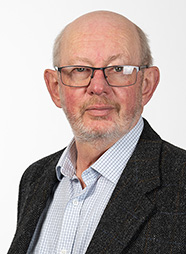 "Operational excellence is not about the management of quality. It is about the quality of management."
"Operational excellence is not about the management of quality. It is about the quality of management."| Area of specialisation |
|
|---|---|
| Faculty / key office |
|
| Education |
|
How to approach Piet's paper?
Some view operational excellence from a quantitative and analytical perspective as a set of tools to ensure and improve quality. As MBA candidates who aspire to enter top and senior management, it is expected that they will approach OE in a systemic manner. Senior managers must understand the analytical results and must be able to use these to initiate, plan and control initiatives that are aimed at improving operational excellence. Students will therefore be aware, understand and be able to apply management principles to obtaining operational excellence. Insight into the factors and principles that promote organisational excellence is therefore emphasised and expected in this course.
International teaching and industry experience
Piet has 40+ years of international experience in the field of engineering management, technology management and commercialisation of technology, as well as training at university and industry level. Piet has a specific interest in the development of business strategy and innovative practice. He is highly regarded in New Zealand and internationally as a practitioner with a sound track record of achievement, using a practical and rigorous approach.
Piet's experiences are many and varied and include being the chief engineer of an airline, systems development advisor in the defence, marine consulting engineering and aerospace industries, and as Director of Technology Commercialisation at the University of South Australia. Piet is also a retired shareholder in an angel investment company. He was instrumental in the establishment of the Canterbury Innovation Incubator and the Christchurch Recovered Materials Foundation, taking this city-wide waste recycling project from concept to commercial reality as project manager, followed by being appointed as its founding CEO.
Piet received a national award for drafting legislation to control the non-proliferation of dual use technologies. He was also a contributor to the founding legislation for the South African National Space Agency (SANSA).
Piet is currently self-employed and lives in Wanaka from where he mentors CEOs, consults with businesses and delivers training workshops to industry.
Piet stepped down after 25 years as Director of the Engineering Management Programme at the University of Canterbury. He is a former director of the Master of Business Administration (MBA) at the University of Canterbury. He also taught in the MBA and MBM at Canterbury, as well as the Master of Entrepreneurship programme at the University of Adelaide. He has been teaching for the MBA programme at the University of Otago since 2017.
Why does Piet enjoy teaching in the MBA programme?
Piet has aways been a system and practice oriented person. Teaching in the MBA allows him to approach his favourite subjects from a high level where many tacit factors, rather than micro-analysis, play a role. He enjoys teaching MBA students for the insights they bring to the subject matter and their willingness to question and challenge things taken by others as granted. He enjoys the responsiveness of MBA students, as well as the fact that he also gains new insights through the real-world experiences that his students bring to class.
Global perspectives of the Operational Excellence paper
The modern world is totally connected and globalised – no organisation is an island unto itself. The OE paper in particular recognises that business operations are dependent on external influences and inputs. We specifically recognise that many operational functions are outsourced and in particular outsourced on a global scale. The principles we study, being the lingua franca of business excellence worldwide, are also globally applicable.
